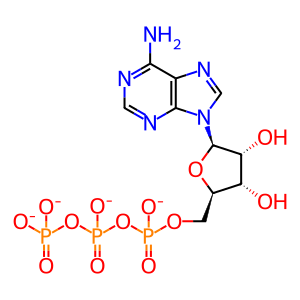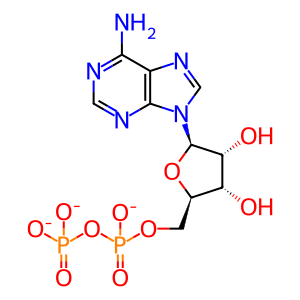Reaction: BCKDK phosphorylates BCKDH
- in pathway: Branched-chain amino acid catabolism
Mitochondrial 3-methyl-2-oxobutanoate dehydrogenase (lipoamide) kinase (BCKDK) catalyses the phosphorylation and inactivation of the branched-chain alpha-ketoacid dehydrogenase (BCKDH) complex, the key regulatory enzyme of the valine, leucine and isoleucine catabolic pathways (Li et al. 2004, Wynn et al. 2004). BCKDH occupies a strategic point in the branched-chain amino acid (BCAA) catabolic pathway, and careful regulation of its activity is essential for correct BCAA metabolism. The overall activity of the BCKDH complex is controlled by the phosphorylation (inactivation)/dephosphorylation (activation) cycle.
Defects in BCKDK can cause branched-chain ketoacid dehydrogenase kinase deficiency (BCKDKD; MIM:614923), a metabolic disorder characterised by autism, epilepsy, intellectual disability, and reduced BCAAs (Novarino et al. 2012, Garcia-Cazorla et al. 2014).
Defects in BCKDK can cause branched-chain ketoacid dehydrogenase kinase deficiency (BCKDKD; MIM:614923), a metabolic disorder characterised by autism, epilepsy, intellectual disability, and reduced BCAAs (Novarino et al. 2012, Garcia-Cazorla et al. 2014).
Reaction - small molecule participants:
ADP [mitochondrial matrix]
ATP [mitochondrial matrix]
Reactome.org reaction link: R-HSA-5693148
======
Reaction input - small molecules:
ATP(4-)
Reaction output - small molecules:
ADP(3-)
Reactome.org link: R-HSA-5693148


